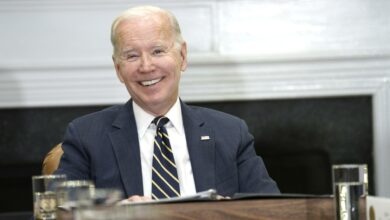Thousands rally in Seoul against South Korean president, Japan gov’t

Seoul, Mar 11 (EFE).- Thousands of South Koreans demonstrated in Seoul on Saturday against a controversial plan presented this week to compensate people who were subjected to forced labor by Japanese companies during World War II.
Several victims or their families have spoken out against the plan, which in principle exempts the two Japanese companies involved from apologizing or compensating them directly.
The crowd, which included figures from the civil and political spectrum, including Lee Jae-myung, leader of the main opposition Democratic Party, gathered at the South Korean capital’s central City Hall Square to show their anger at the government’s proposal.
“I have come to express my rejection of the fact that the president has ignored the will of the people and acted to favor Japan and without the consent of the people. And that is unacceptable,” Kim Chang-dae, one of the attendees, told Efe.
Under the plan, 15 Korean citizens who won lawsuits in 2018 against Nippon Steel and Mitsubishi’s heavy industry division would receive compensation for being subjected to forced labor in the early 1940s.
The plan outlined by the government of conservative president Yoon Suk-yeol would collect “voluntary” donations from South Korean companies, particularly firms like steel giant Posco.
The Japanese government led by prime minister Fumio Kishida has welcomed Seoul’s plan, and underlined that it will continue to apologize to those who suffered under Japanese colonial rule.
Posco was one of the main beneficiaries of a $300 million aid package that Tokyo offered to Seoul to compensate victims of Japanese colonization as part of the bilateral relations agreement signed in 1965.
The Japanese authorities maintain that all compensation was resolved based on that treaty.
The two countries have held several rounds of talks on the issue in recent months under the Yoon government, which came to power last year.
Foreign minister Park said last week that he hoped the two countries would respect a 1998 joint declaration, in which the then South Korean and Japanese leaders, Kim Dae-jung and Keizo Obuchi, urged the neighbors to look beyond their historic differences to build a relationship for the future.
In the statement, Obuchi had expressed regret and apologized for the pain caused by Japan’s colonization of the peninsula between 1910 and 1945. EFE
asb/ks





